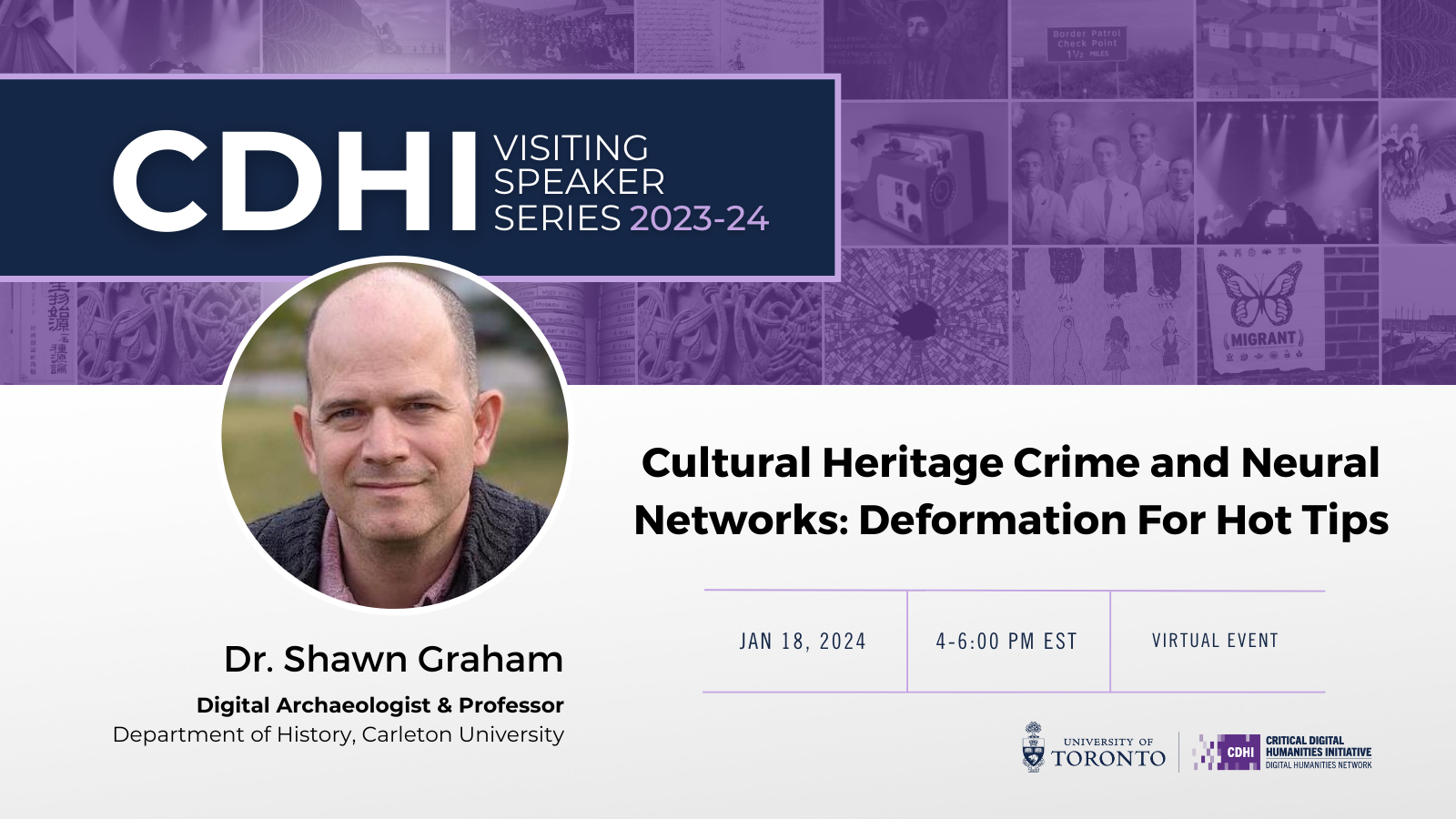
- This event has passed.
CDHI Visiting Speaker Series: Shawn Graham

CDHI is pleased to welcome our third and final Visiting Speaker of 2023-24: Dr. Shawn Graham.
Professor Graham’s talk is titled, “Cultural Heritage Crime and Neural Networks: Deformation for Hot Tips”
How can archaeologists use digital tools to prevent cultural heritage crimes? In the digital humanities, we sometimes talk about “deforming“ our materials to see them with new eyes, to be able to spot new connections or ask new questions. In this talk, I use a variety of neural networks to deform case studies around various kinds of art and cultural heritage crime, for a project we call “The New Organigram Project“. The original organigram was a diagram drawn by an Italian mid-level gangster showing how various tomb robbers, middlemen, dealers, and museum people were organized in Italy in various “cordata“ (Italian for how mountain climbers are tied together as they ascend). The new “organigram“ generates automatic (well, for a given value of “automatic“) knowledge graphs from newspaper articles, auction catalogues, the Panama Papers, and other public sources. In this talk I explain how we use graph embedding models to represent those knowledge graphs about the antiquities trade to generate new tips, and how lately we’ve been using large language models to expand the scale and scope of our input knowledge graphs. By developing neural networks, large language models, and graph embedding models trained on publicly available sources, I demonstrate the potential of these analytical tools in predicting and preventing cultural heritage crime.
Shawn Graham is a digital archaeologist and Full Professor in the Department of History at Carleton University in Ottawa, Canada. He is also the Programme Coordinator for the MA specialization in Digital Humanities. He edits the open access journal Epoiesen: A Journal for Creative Engagement in History and Archaeology. His current major research project, together with his collaborator Damien Huffer, uses neural networks and computer vision to explore the online trade in human remains. As part of the Computational Research in the Ancient Near East (CRANE) Project from the University of Toronto, he is exploring generative adversarial networks and archaeological photography. With Dr. Donna Yates of the University of Maastricht, he is exploring knowledge graph embedding models of the antiquities trade. For more on his research, see his faculty page or his publications.
This event will be held virtually via Zoom. Please register at this link.
